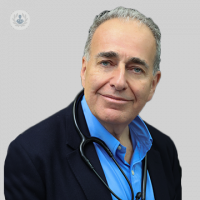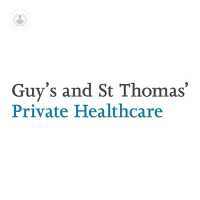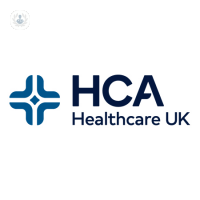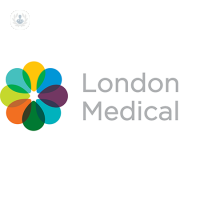What is anaphylaxis?
Anaphylaxis, also called anaphylactic reaction or anaphylactic shock, is a serious, life-threatening allergic reaction.

What are the symptoms of anaphylaxis?
Symptoms occur in a severe and rapid way throughout the body. The most common symptoms include:
- abdominal pain
- discomfort or tightness in the chest
- diarrhoea
- difficulty swallowing
- difficulty breathing, coughing, wheezing or acute breathing noises
- dizziness or vertigo
- urticaria, itching, or reddening of the skin
- swelling of the face, eyes and tongue
- nausea and vomiting
- palpitations and anxiety
- loss of consciousness
What are the causes of anaphylaxis?
Anaphylaxis occurs in response to any allergen. The most common causes are allergies to food, to drugs and to insect stings or bites.
Can anaphylaxis be prevented?
If you have a severe allergy to something it is important to see an allergy specialist for treatment. The doctor will suggest doing your best to avoid the allergen that triggers the reaction, and will prescribe emergency medication to take if you start to have an allergic shock. This medication is fast-acting and aims to prevent the reaction advancing to anaphylaxis.
What is the treatment for anaphylaxis?
If you see someone suffering from anaphylaxis, first of all, it is necessary call for emergency help, then check the airways, breathing, and circulation. If necessary, give mouth-to-mouth breathing and cardiopulmonary resuscitation (CPR).
Once you have ensured they are breathing and their heart is beating, you must:
- help the person to take emergency medication (if any)
- lay the person horizontally, raising the feet at least 30 cm, and covering them with a blanket (do move the person if you suspect a head, back, neck or leg injury)
- if the reaction is due to the sting of a bee, scrape the sting of the skin with your fingernails or with a credit card, but not with tweezers.
Do not put a pillow under the person’s head or give them anything by mouth if they are having trouble breathing.
When the paramedics arrive, treatment may involve:
- placing a tube through the nose or mouth or perform emergency surgery to place a tube in the windpipe to open the airway
- providing medication to combat the symptoms of the allergic reaction
Anaphylaxis
Dr Bhupinder Singh Sihra - Allergy & immunology
Created on: 02-02-2016
Updated on: 05-24-2023
Edited by: Conor Lynch
What is anaphylaxis?
Anaphylaxis, also called anaphylactic reaction or anaphylactic shock, is a serious, life-threatening allergic reaction.

What are the symptoms of anaphylaxis?
Symptoms occur in a severe and rapid way throughout the body. The most common symptoms include:
- abdominal pain
- discomfort or tightness in the chest
- diarrhoea
- difficulty swallowing
- difficulty breathing, coughing, wheezing or acute breathing noises
- dizziness or vertigo
- urticaria, itching, or reddening of the skin
- swelling of the face, eyes and tongue
- nausea and vomiting
- palpitations and anxiety
- loss of consciousness
What are the causes of anaphylaxis?
Anaphylaxis occurs in response to any allergen. The most common causes are allergies to food, to drugs and to insect stings or bites.
Can anaphylaxis be prevented?
If you have a severe allergy to something it is important to see an allergy specialist for treatment. The doctor will suggest doing your best to avoid the allergen that triggers the reaction, and will prescribe emergency medication to take if you start to have an allergic shock. This medication is fast-acting and aims to prevent the reaction advancing to anaphylaxis.
What is the treatment for anaphylaxis?
If you see someone suffering from anaphylaxis, first of all, it is necessary call for emergency help, then check the airways, breathing, and circulation. If necessary, give mouth-to-mouth breathing and cardiopulmonary resuscitation (CPR).
Once you have ensured they are breathing and their heart is beating, you must:
- help the person to take emergency medication (if any)
- lay the person horizontally, raising the feet at least 30 cm, and covering them with a blanket (do move the person if you suspect a head, back, neck or leg injury)
- if the reaction is due to the sting of a bee, scrape the sting of the skin with your fingernails or with a credit card, but not with tweezers.
Do not put a pillow under the person’s head or give them anything by mouth if they are having trouble breathing.
When the paramedics arrive, treatment may involve:
- placing a tube through the nose or mouth or perform emergency surgery to place a tube in the windpipe to open the airway
- providing medication to combat the symptoms of the allergic reaction


Paediatric allergies: what are the main types of allergic reactions?
By Dr Chinedu Nwokoro
2024-11-19
Dr Chinedu Nwokoro, a consultant respiratory and general paediatrician, has put together this useful guide for parents to understand the various types of allergic reactions your child might experience and the symptoms to look out for. See more


Signs of anaphylaxis in children and what to do
By Professor Adam Fox
2024-11-18
Professor Adam Fox explains the signs of anaphylaxis (an extreme and potentially life-threatening allergic reaction) and what to do if your child is showing these signs. See more


Allergies in children (Part one)
By Dr Basheer Peer-Mohamed
2024-11-18
Parents or guardians who want to inform themselves about allergies in their child can be confident in the knowledge there are ways to treat them. However, what about getting the best advice and assistance? Well, senior consultant paediatrician Dr Basheer Peer-Mohamed has put together a comprehensive, two-part, guide about allergies in children. Part one covers types, causes and symptoms. Read on to find out more. See more


All about about paediatric food allergy
By Dr Mugilan Anandarajan
2024-11-14
Leading paediatric consultant Dr Mugilan Anandarajan discusses the ins and outs of paediatric food allergy, answering some of the most commonly-asked questions about it in this expert article. See more
Experts in Anaphylaxis
-
Dr Robert Boyle
Paediatric allergy & immunologyExpert in:
- Asthma
- Allergic reactions
- Anaphylaxis
- Food intolerance test
- Food allergies
-
Professor Adam Fox
Allergy & immunologyExpert in:
- Food allergies
- Child allergies
- Asthma
- Allergic rhinitis
- Allergic urticaria
- Anaphylaxis
-
Dr Bhupinder Singh Sihra
Allergy & immunologyExpert in:
- Allergy testing
- Asthma in children
- Anaphylaxis
- Allergic urticaria
- Respiratory diseases
- Wheezing
-
Professor Gideon Lack
Paediatric allergy & immunologyExpert in:
- Asthma in children
- Allergic reactions
- Anaphylaxis
- Immunotherapy
- Food allergies
- Hay fever
- See all

Guy’s and St Thomas’ Private Healthcare
Guy’s and St Thomas’ Private Healthcare
Guy’s Hospital, Great Maze Pond
No existe teléfono en el centro.
By using the telephone number provided by TOP DOCTORS, you automatically agree to let us use your phone number for statistical and commercial purposes. For further information, read our Privacy Policy
Top Doctors

The Portland Hospital - part of HCA Healthcare
The Portland Hospital - part of HCA Healthcare
205 - 209 Great Portland St. W1W 5AH
No existe teléfono en el centro.
By using the telephone number provided by TOP DOCTORS, you automatically agree to let us use your phone number for statistical and commercial purposes. For further information, read our Privacy Policy
Top Doctors

London Medical
London Medical
49 Marylebone High Street, W1U 5HJ
No existe teléfono en el centro.
By using the telephone number provided by TOP DOCTORS, you automatically agree to let us use your phone number for statistical and commercial purposes. For further information, read our Privacy Policy
Top Doctors
-
Guy’s and St Thomas’ Private Healthcare
Guy’s Hospital, Great Maze Pond, SE1 South Bank LondonExpert in:
- Allergy
- Cardiology
- General Surgery
- Maxillofacial Surgery
- Thoracic Surgery
- Maternity care
-
The Portland Hospital - part of HCA Healthcare
205 - 209 Great Portland St. W1W 5AH, Central LondonExpert in:
- Neurological spinal surgery
- Orthopaedic spinal surgery
- Maternity care
- Pregnancy
- Scoliosis
- In vitro fertilisation (IVF)
-
London Medical
49 Marylebone High Street, W1U 5HJ, Central LondonExpert in:
- Cardiology
- Adult Diabetes
- Child Diabetes
- Endocrinology
- General practice
- Ophthalmology
- See all
- Most viewed diseases, medical tests, and treatments
- Child nutrition
- Nutrition
- Abdominal pain
- Digestive diseases
- Rhinomanometry
- Intradermal test
- Infant feeding
- Infant colic
- Acid reflux
- Breastfeeding






